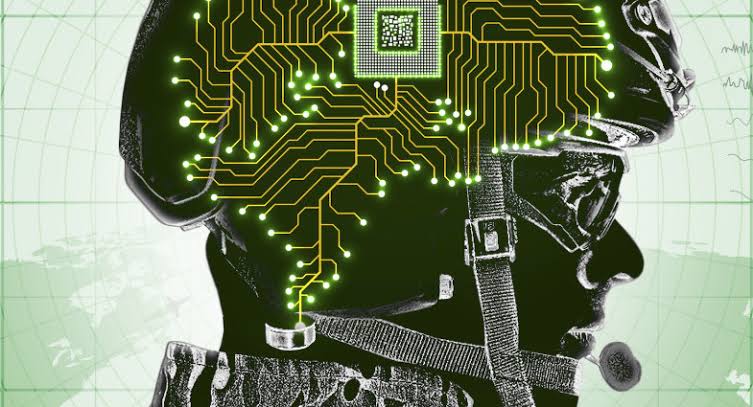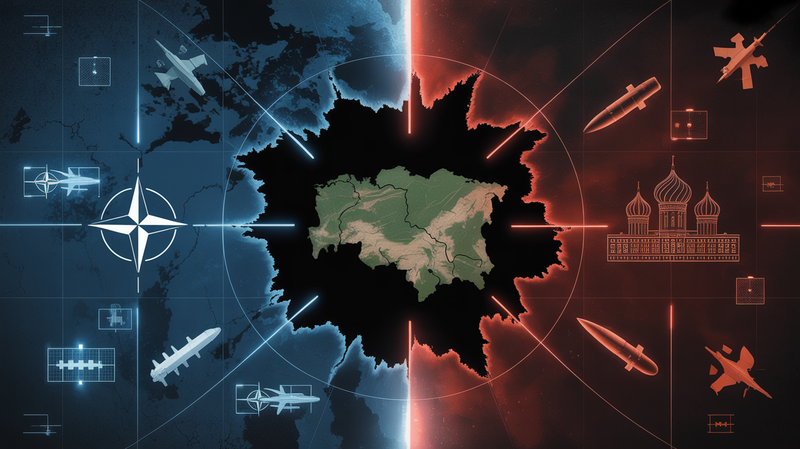Unseen Strings: The Historical Emergence of Cognitive Warfare
Shadows from the Past The art of manipulating public opinion has been an integral part of human history. Leaders have long recognized the power of shaping minds to gain influence, forge alliances, or win wars. From the oratory prowess of Pericles in Ancient Greece to the propagandist leaflets of the

Shadows from the Past
The art of manipulating public opinion has been an integral part of human history. Leaders have long recognized the power of shaping minds to gain influence, forge alliances, or win wars. From the oratory prowess of Pericles in Ancient Greece to the propagandist leaflets of the World Wars, the strategic maneuvering of minds has been a constant undercurrent throughout the ages. But the dawn of the digital era has seen these currents gather into a formidable wave, a new form of conflict known as cognitive warfare.
As societies evolved, so did the methods of persuasion and manipulation. The printing press, radio, and television each revolutionized the spread of information, giving rise to the era of mass media. Governments could now disseminate their narratives to a wider audience, coloring perceptions on an unprecedented scale. The art of influencing minds had transformed into a science, with psychology and communication theory providing the foundations.
With the advent of the digital revolution, cognitive warfare entered a new era. The ubiquity of the internet and the surge of social media platforms have fundamentally altered the landscape of influence. Information - true, false, and everything in between - is now disseminated at lightning speed, reaching every corner of the globe. Governments and organizations now had access to a wealth of data, a treasure trove of insights into the minds of their citizens.
But this digital revolution brought with it an array of sophisticated tools. Machine learning algorithms could now sift through mountains of data, predicting behavior with startling accuracy. Artificial Intelligence could craft personalized narratives, targeting individual biases and beliefs. Cognitive warfare had entered the realm of hyper-personalization, with each citizen becoming a unique battleground.
As we stand at the dawn of this new era, we find ourselves at a crossroads. Cognitive warfare, with all its promise and peril, is a reality that we must confront. By understanding its roots and tracing its evolution, we can navigate the complex labyrinth of digital influence with discernment and critical thinking. As we look to the future, let us remember the lessons of the past and wield our cognitive abilities with responsibility and wisdom. The stage is set for the next chapter in the fascinating saga of cognitive warfare.
Invisible Puppeteers: Cognitive Warfare and the Subtle Art of Shaping Minds
Cognitive warfare isn't just for grand international conflicts. Even within a nation's borders, governments engage in a subtler, often overlooked form of cognitive warfare: shaping public perception to maintain social harmony and gain political support.
Picture this: A small northern European nation, Estonia, known for its digital savviness, grapples with the intricacies of cognitive warfare. Yet, this isn't a battle against external forces, but an inward-focused campaign. Their enemy? Misinformation, societal discord, and political skepticism.
Imagine the Estonian government using its digital infrastructure to promote public initiatives, counter fake news, and encourage democratic participation. They don't just broadcast messages; they use sophisticated algorithms to personalize their approach, reaching each citizen in the most impactful way.
Imagine further how these algorithms analyze citizens' online behavior, learning from each interaction, comment, like, or share. They understand cognitive biases - those stubborn quirks of judgment that cloud our thinking - and tailor messages to nudge citizens towards desirable behavior.
Yet, the government's purpose isn't nefarious. They aim to foster a well-informed, harmonious society, countering the divisive narratives that threaten their unity. They use the tools of cognitive warfare to serve their citizens, not manipulate them. At least, that's the ideal.
However, one cannot ignore the potential for misuse. Cognitive warfare, even when domestically focused, is a powerful tool. In the wrong hands, it can become a weapon for mass manipulation, stoking divisions, and inciting unrest. The same techniques that encourage civic engagement could just as easily be employed to suppress dissent, amplify false narratives, and erode public trust.
But awareness is the first line of defense. By understanding cognitive warfare's mechanisms and potentials, we can better recognize when they're at play, even in our daily lives. We become less susceptible to manipulation and more able to engage critically with the information we encounter.
Thus, the story of cognitive warfare continues to unfold. From its roots in ancient manipulation techniques to its modern-day incarnations in AI algorithms and data analytics, cognitive warfare remains a powerful force in shaping societies. And as we continue to navigate this digital age, one thing remains clear: the battle for our minds is far from over.
Guarding the Fortress: Safeguarding Against Cognitive Warfare in the Modern Age
In an era characterized by complex cybernetics, intricate psychological operations, and ceaseless attempts to manipulate the human mind, the importance of establishing safeguards against cognitive warfare becomes a paramount concern. As the battleground shifts to our minds and consciousness, one cannot overstate the significance of cognitive self-defense. We find ourselves standing on the front lines, armed with knowledge and the power of discernment, facing an invisible adversary that seeks to infiltrate our thoughts, beliefs, and perceptions.
The first line of defense against cognitive warfare is education and awareness. A population well-versed in the mechanisms of cognitive warfare and equipped with robust critical thinking skills is a formidable barrier against cognitive assault. This doesn't merely mean disseminating information about these techniques, but also teaching people how to critically evaluate the vast array of information they consume daily. Media literacy, digital hygiene, and understanding cognitive biases are the cornerstones of this educational strategy.
With the increasing sophistication of artificial intelligence and machine learning algorithms, there is a pressing need for regulations that ensure these technologies are used responsibly. Legislation must be enacted that curtails the unregulated collection and use of personal data, the primary fuel for cognitive warfare tactics. Transparency and accountability should be mandatory for organizations wielding these powerful tools.
On an individual level, each of us must make a conscious effort to understand our cognitive biases and how they influence our decision-making processes. Recognizing and acknowledging our biases helps us make more informed decisions, and it diminishes the opportunity for malicious actors to exploit them.
We must also adapt our mental health practices to account for the psychological strains of this new form of warfare. Supportive and proactive mental health care can aid in cultivating resilience against cognitive warfare tactics. This can range from increasing societal awareness about the importance of mental health to providing easily accessible mental health services.
As we navigate this brave new world of cognitive warfare, we must also foster a culture that values truth and objectivity. A society that prizes these values will be less susceptible to disinformation campaigns and more resilient in the face of attempts to manipulate public opinion.
In the digital age, where information is power, we must become masters of our own minds. Recognizing the realities of cognitive warfare is the first step. The next is arming ourselves with the knowledge and tools necessary to defend against it. Our thoughts, beliefs, and perceptions are our most precious assets – it's time we protected them with the vigilance they deserve.
Mastering Our Minds in the Digital Age
The age of digitization has brought unprecedented access to information, transforming the world as we know it. Data has become the lifeblood of our economies, societies, and personal lives, shaping our perceptions and molding our realities. With information so readily at our fingertips, it has become more imperative than ever before to guard our cognitive landscapes.
Information is power, a mantra that has held its weight from ancient kingdoms to modern democracies. The ability to control information can sway public opinion, topple governments, and reconfigure societal norms. But in the digital age, information no longer travels in one direction, from the powerful few to the many. It has become a complex web, constantly evolving and branching out, placing considerable power in the hands of anyone connected to it.
In this grand digital theater, we are both the audience and the actors, consumers and producers of information. As such, we wield tremendous power, but also find ourselves vulnerable. Cognitive warfare seeks to exploit this vulnerability, infiltrating our minds not with brute force but with subtle manipulation, using our biases and prejudices to shape our perceptions and decisions.
Understanding this dynamic is the first step towards gaining mastery over our minds in the digital age. It's about recognizing the potential for manipulation and developing the skills to discern truth from falsehood, relevant information from noise. It's about being vigilant of our own cognitive biases, and being aware that these can be used against us.
But mastering our minds is not just about defense; it is also about offense. In the digital age, each one of us has the ability to influence and shape the information landscape. By being responsible producers of information, by checking our facts before sharing, by fostering healthy debates rather than amplifying divisive narratives, we can contribute to a more truthful and balanced digital ecosystem.
Moreover, it is about understanding that our minds are not just passive recipients of information but active participants in its creation. Every tweet, share, or comment is a reflection of our thoughts and beliefs, contributing to the collective consciousness of the digital age. Thus, mastering our minds is also about shaping our thoughts and perceptions in a positive and constructive manner, fostering empathy, openness, and understanding.
Indeed, mastering our minds in the digital age is a formidable challenge, one that requires us to balance our power with responsibility, our vulnerability with resilience. But it is a challenge we must embrace. For in the end, we are not just spectators in the digital age, we are its architects. Our minds are the building blocks of this new world, and we must ensure that they are foundations of truth, understanding, and compassion.
In this world, where information is power, let us strive to become masters of our own minds, wielding this power not just for self-preservation, but for the betterment of our societies. Let us remember that in the grand theater of the digital age, our minds are our most powerful tool. Let's use them wisely.




